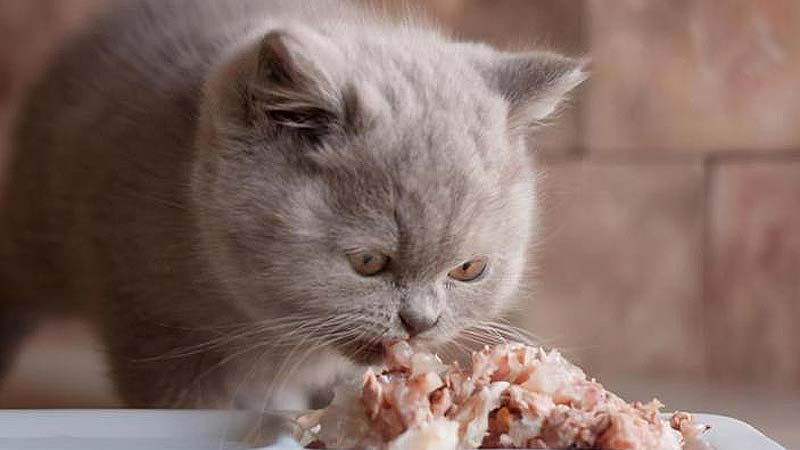Why Cats Adore Fresh, Nutritious Food

Cats, with their finicky tastes and discerning palates, are notorious for being particular about their food. As any feline enthusiast will attest, these creatures are connoisseurs when it comes to their meals. One crucial aspect that stands out in understanding their dietary preferences is their inclination towards fresh, nutritious food.
In this articles, we will unravel the fascinating reasons behind cats' inclination towards fresh food and delve into the significant impact it has on their overall health and satisfaction.
The Natural Instinct
From the regal lion to the dainty house cat, the feline species has historically been carnivorous. Their ancestors evolved as hunters, thriving on a diet of freshly captured prey. This inherent instinct for fresh food remains deeply ingrained in domestic cats today.
The Appeal of Freshness
For cats, the appeal of fresh food is multi-fold. Firstly, the aroma of fresh meat triggers their hunting instincts. The scent of raw meat or freshly prepared food activates a cat's natural desire to pounce and devour. This instinctual behavior echoes their ancestral roots as skilled hunters.
Moreover, the texture and taste of fresh food are more appealing to cats. The moisture content and tenderness of fresh meat align closely with what their ancestors would consume in the wild. This preference is why cats might turn their noses up at stale or leftover food in favor of a freshly served meal.
Nutritional Benefits
Beyond the sensory allure, the nutritional advantages of fresh, high-quality food significantly impact a cat's health and overall well-being.
Protein Prowess
Protein is an essential component of a cat's diet. Being obligate carnivores, cats rely on animal-based protein sources for their dietary needs. Freshly prepared meat provides the necessary proteins, amino acids, and taurine crucial for their muscle development, organ function, and overall vitality. Unlike processed or older food, fresh meat contains higher levels of these vital nutrients.
Hydration Quotient
Cats often struggle to maintain adequate hydration levels due to their low thirst drive. Fresh food, particularly wet or raw diets, contains higher moisture content, aiding in hydration. This becomes pivotal, especially for cats prone to urinary issues or those on a dry kibble diet.
Minimized Additives
Fresh, home-cooked, or raw diets generally lack the preservatives, additives, and artificial colors often found in commercial cat food. Minimizing exposure to these substances reduces the risk of allergies, digestive problems, and other health issues that might arise from consuming processed food.
Digestive Health
The higher digestibility of fresh food can lead to improved gastrointestinal health in cats. Fresh diets tend to be easier on their digestive systems, reducing the occurrence of sensitive stomachs, vomiting, or diarrhea commonly associated with low-quality or processed foods.
Transitioning to Fresh Food
Transitioning a cat to a fresh food diet requires patience and a gradual approach. Cats can be resistant to sudden dietary changes, so it's advisable to introduce fresh foods slowly, mixing them with their existing diet. This gradual transition helps prevent digestive upset and allows the cat to adapt to the new flavors and textures.
Practical Tips for Fresh Feeding
Variety is Key
Offering a variety of fresh protein sources replicates the diverse diet their wild counterparts would have. Incorporating different meats like chicken, turkey, beef, or fish ensures a balanced intake of nutrients.
Balanced Nutrition
Consulting a veterinarian or a feline nutritionist is essential to ensure the diet meets all the cat's nutritional requirements. These experts can provide guidance on portion sizes, supplements, and any specific dietary needs based on the cat's age, health, and activity levels.
Food Safety
Maintaining proper food handling and storage practices is crucial to prevent bacterial contamination. Raw diets, in particular, require stringent hygiene measures to avoid any potential health risks for both the cat and its human companions.
Conclusion
Cats are not just pets; they're cherished members of our families. Understanding and catering to their innate preferences for fresh, nutritious food isn't just a way to pamper them; it's a means to ensure their optimal health and happiness. By embracing their natural instincts and providing them with high-quality, fresh meals, we honor their lineage as skilled hunters and companions, fostering a healthier and more fulfilling life for our feline friends.
You May Also Like
 Cat Nutrition & FoodKitten Food vs. Senior Cat Food: What You Need to Know!
Cat Nutrition & FoodKitten Food vs. Senior Cat Food: What You Need to Know! Cat Nutrition & FoodHow Many Times Should A Cat Eat Wet Food A Day?
Cat Nutrition & FoodHow Many Times Should A Cat Eat Wet Food A Day? Help & AdviceWhat Meat Should Cats not Eat?
Help & AdviceWhat Meat Should Cats not Eat? Cat HealthCan Cats Eat Chocolate? The Answer Is An Emphatic "No!"
Cat HealthCan Cats Eat Chocolate? The Answer Is An Emphatic "No!" Cat Nutrition & FoodKitten Food vs. Cat Food: What's the Difference?
Cat Nutrition & FoodKitten Food vs. Cat Food: What's the Difference? Cat HealthHow Much Thiamine Does A Cat Need Per Day?
Cat HealthHow Much Thiamine Does A Cat Need Per Day?